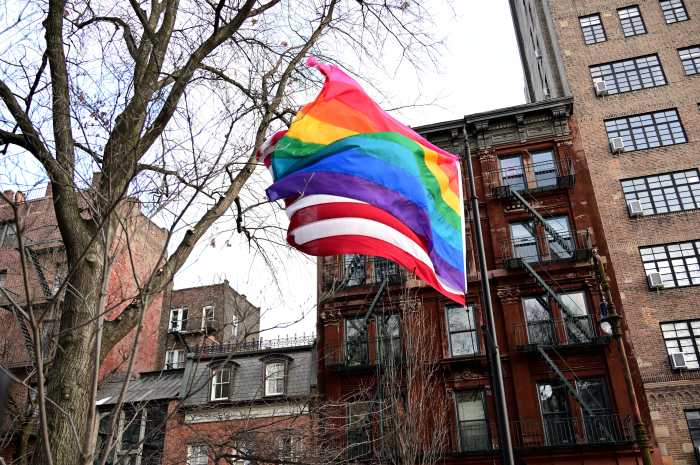In ruling suggesting Minnesota's DOMA may be invalid, panel orders state constitutional review
The Court of Appeals of Minnesota, the state’s intermediate appellate bench, has ruled that a district judge erred in dismissing outright a lawsuit by three same-sex couples seeking marriage licenses.
Finding that Hennepin County District Judge Mary Dufresne inappropriately relied on a 1971 Minnesota Supreme Court decision, Baker v. Nelson, the Court of Appeals, on January 23, sent the case back to the trial court with instructions to determine if denying marriage licenses to the couples violates the Minnesota Constitution’s due process, equal protection, and freedom of association requirements.
Writing for the unanimous three-judge panel, Judge Renee L. Worke pointed out that the 1971 ruling –– in a case brought by a gay male couple seeking a marriage license –– was based entirely on the US Constitution and that the opinion issued by the State Supreme Court undertook no analysis under the Minnesota Constitution. The 1971 case was denied review by the US Supreme Court, which said it presented no “substantial” federal constitutional question.
Significantly, the Court of Appeals noted that Minnesota courts have construed their State Constitution to place a more significant burden of justification on the state when it adopts policies that raise due process and equal protection questions.
Worke also observed that federal constitutional law has moved on since 1971 and decisions including the US Supreme Court’s 1996 ruling in Romer v. Evans –– which struck down a voter-approved Colorado state constitutional amendment prohibiting state and local gay nondiscrimination protections –– might require a different analysis of a federal equal protection claim concerning same-sex marriage.
The Court of Appeals did, however, grant a motion by the state to be dismissed as a defendant, finding that only the local official charged with issuing marriage licenses, the Hennepin County registrar in Minneapolis, who had actually denied the marriage licenses, was an appropriate defendant.
The court also approved Judge Dufresne’s dismissal of a religious freedom claim asserted by the couples, one of which had enjoyed a church wedding not recognized by the state because of its Defense of Marriage Act. The court, seemingly having missed the point of this claim, concluded, “There is no evidence that the state’s failure to recognize same-sex marriages interferes with the appellants engaging in a religious marital ceremony.”
However, the court was clear in ruling that the plaintiffs are entitled to put the burden of justifying their exclusion from marriage on the state. The court was not ready to hold that same-sex couples are necessarily being denied a fundamental right on the basis of a suspect classification –– a category such as race or gender where discrimination claims receive a higher degree of scrutiny.
It did, however, point out that Minnesota courts apply a more stringent version of the “rational basis” test than does the US Supreme Court under the Federal Constitution, where a law is presumed constitutional unless a claimant can show it has no rational basis. Minnesota courts “have been unwilling to hypothesize a rational basis… as the more deferential federal standard requires,” Worke wrote. The burden is shifted from the plaintiff to the state, which must put forth a defensible justification for the law.
“Appellants claim that the government cannot deprive them of their fundamental right to marry without showing that this denial is narrowly tailored to serve a compelling state interest,” Worke wrote. “But even if the right to marry is not considered a fundamental right, appellants should have been granted an opportunity to show that MN DOMA is not a reasonable means to its stated objective –– to promote opposite-sex marriages to encourage procreation. The district court failed to conduct an appropriate analysis under the Minnesota Constitution.”
The plaintiffs’ due process, equal protection, and freedom of association claims, the court concluded, were “improperly dismissed.”
Worke also noted that in the 1971 case, the Minnesota Supreme Court said that there was no guidance from the US Supreme Court “regarding whether the right to marry is a fundamental right of all persons and whether restricting marriage based solely on sex is ‘irrational and invidiously discriminatory.’” Since that time, the US Supreme Court “has issued decisions providing guidance on these issues.” Here, Worke singled out the Romer v. Evans ruling.
Clearly, in the opinion of the Court of Appeals, there is a serious question under state constitutional law whether Minnesota’s DOMA is constitutional. The court does not discuss or even cite recent federal rulings casting doubt on the federal DOMA’s denial of US recognition of legal same-sex marriages or the Prop 8 ruling in California, but these clearly hover in the background of the Minnesota decision.
The three couples were not represented by any of the national LGBT litigation groups, but rather by a local attorney, Peter J. Nickitas. It did attract amicus attention from the usual suspects, including the anti-gay Alliance Defense Fund and the Minnesota Catholic Conference, which filed a brief also representing the views of associations of Evangelicals and Hassidic Jews. Only Minnesota Atheists filed an amicus brief in support of the plaintiffs.
Since the state is no longer a defendant in the case, the decision whether to appeal this ruling to the Minnesota Supreme Court rather than go back to the district court for discovery and trial falls to the Hennepin County attorney, Michael O. Freeman.




































